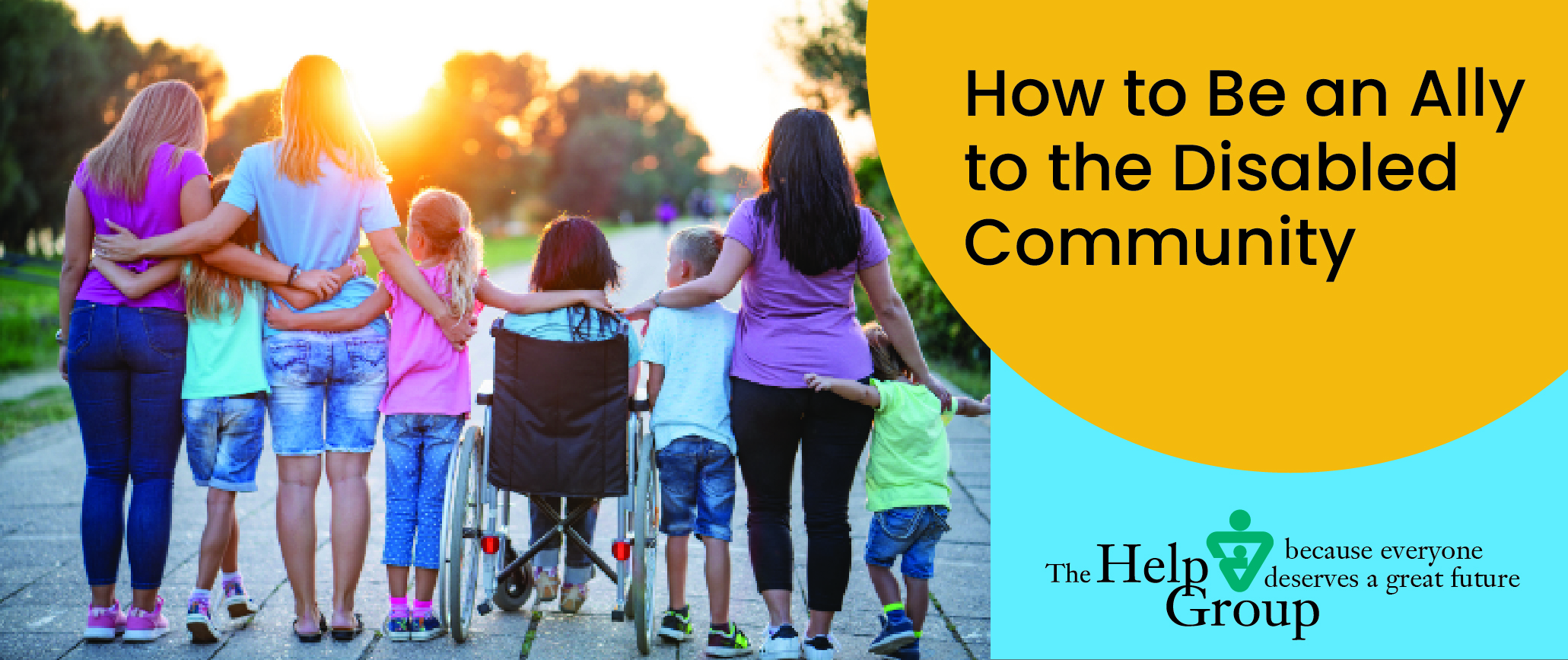
How to Be an Ally to the Disabled Community
As an organization dedicated to empowering individuals with diverse needs, The Help Group recognizes the importance of allyship in creating a more inclusive society. We believe that true progress comes when everyone, regardless of their abilities, works together to create a world that celebrates diversity and embraces differences. Being an ally goes beyond mere awareness; it involves active support, advocacy, and a commitment to learning and growth. Here are some ways you can be a better ally to disabled people:
Listen and learn. Pay attention to the experiences and perspectives of disabled individuals. Their lived experiences are invaluable in understanding the challenges they face and the support they need.
Use respectful language. Educate yourself on person-first and identity-first language preferences. When in doubt, ask the individual how they prefer to be addressed.
Advocate for accessibility. Support and promote accessibility in public spaces, workplaces, and educational institutions. This includes physical accessibility as well as digital accessibility. At The Help Group, we understand this firsthand, as some of our teachers, instructional aides, and staff members have various disabilities that require accessibility accommodations. Our campuses are equipped with features like wheelchair ramps, ensuring that all members of our community can navigate our spaces comfortably. This personal experience reinforces our commitment to advocating for universal accessibility, recognizing that creating inclusive environments benefits everyone and allows all individuals to participate fully in society.
Challenge ableism. Speak up against ableist attitudes, jokes, or discriminatory practices when you encounter them. Take action, confront stereotypes, and use moments as opportunities to inform others of practices that unfairly impact disabled individuals.
Promote representation. Support disabled artists, writers, and professionals and advocate for authentic representation of disabled individuals in media and leadership positions. By actively promoting representation, we can challenge societal misconceptions about disability, provide role models for disabled youth, and create a more inclusive cultural landscape that reflects the true diversity of human experience.
Respect autonomy. Avoid making assumptions about a person’s abilities or needs. Always ask before offering assistance. Remember that disabled people are experts in their own lives and capable of making their own decisions. When help is accepted, follow their instructions precisely. Communicate directly with disabled individuals, not through companions, and presume competence in all interactions. Respect personal space, including assistive devices, and avoid unsolicited advice or intrusive questions.
Educate yourself. Stay informed about disability rights, issues, and legislation. Share this knowledge with others to raise awareness.
Support organizations helping the disabled. Supporting organizations helping the disabled community is a powerful way to be an ally. These organizations provide disabled individuals with essential services, advocacy, and community support. By donating to or volunteering with such groups, you directly contribute to empowering disabled voices and advancing disability rights. The Help Group is committed to serving and empowering children with disabilities and special needs. If you’d like to support our mission, you can make a donation through our website. Your contribution helps fund our specialized educational programs, therapeutic services, and enrichment activities, ensuring that children with diverse needs receive the support they need to thrive. Remember, every donation, no matter the size, makes a meaningful difference in the lives of the children and families we serve.
Acknowledge intersectionality. Recognize that disability intersects with other identities such as race, gender, and sexuality. These intersections create unique experiences and challenges. Be mindful of how multiple marginalized identities can compound discrimination and barriers. This nuanced understanding is crucial for effective advocacy and support.
Amplify disabled voices. Use your platform to share the work and perspectives of disabled individuals rather than speaking for them. Share articles, art, and content created by disabled people on your social media channels. When organizing events or panels, ensure disabled speakers are included and given prominent roles. In discussions about disability, defer to the expertise of disabled individuals and encourage others to listen directly to their voices.
Remember, being an ally is an ongoing process of learning and action. By consistently working to support and empower disabled individuals, we can all contribute to creating a more inclusive and equitable society.
At The Help Group, we strive to embody allyship in all aspects of our work. From our daily interactions and educational programs to our community outreach efforts, we consistently promote understanding, respect, and acceptance. We actively encourage our staff, students, families, and partners to cultivate empathy, challenge biases, and take concrete actions to support disabled individuals. Through these collective efforts, we aim to build a community where every person feels truly valued, heard, and empowered to reach their full potential. Our commitment to allyship is not just a goal, but a fundamental part of our mission to create a more inclusive and supportive environment for all.
Have a question about our schools and programs?
Contact us at:admissions@thehelpgroup.org
